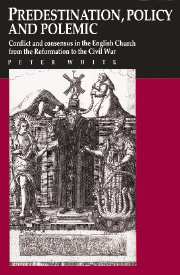
The following excerpt comes from Peter White's definitive work, Predestination, Policy, and Polemic: Conflict and Consensus in the English Church from the Reformation to the Civl War (CUP, 1992), page 198.
+++++++++++++
Even more striking are the British comments on the rejectio errorum under this head [Fifth Head -- Perseverance]. By far the most important was their successful request to exclude from condemnation those who taught that true believers and regenerate ('vere credentes et regenitos') were able to fall from the faith of justification. The reasons they gave merit attention:
We ourselves think that this doctrine is contrary to Holy Scripture, but whether it is expedient to condemn it in these our canons needs great deliberation. On the contrary, it would appearThose powerful arguments were effective, and the canon was dropped. As a corollary, the British also asked for the doctrine that temporary faith differed from justifying and saving faith only in duration not to be rejected by the synod...
1. That Augustine, Prosper and the other Fathers who propounded the doctrine of absolute predestination and who opposed the Pelagians, seem to have conceded that certain of those who are not predestined can attain the state of regeneration and justification. Indeed, they use this very argument as an illustration of the deep mystery of predestination; which cannot be unknown to those who have even a modest acquaintance with their writings [!].
2. That we ought not without grave cause to give offence to the Lutheran churches, who in this matter, it is clear, think differently.
3. That (which is of greater significance) in the Reformed churches themselves, any learned and saintly men who are at one with us in defending absolute predestination, nevertheless think that certain of those who are truly regenerated and justified, are able to fall from that state and to perish and that this happens eventually to all those, whom God has not ordained in the decree of election infallibly to eternal life. Finally we cannot deny that there are some places in Scripture which apparently support this opinion, and which have persuaded learned and pious men, not without a great probability.

No comments:
Post a Comment